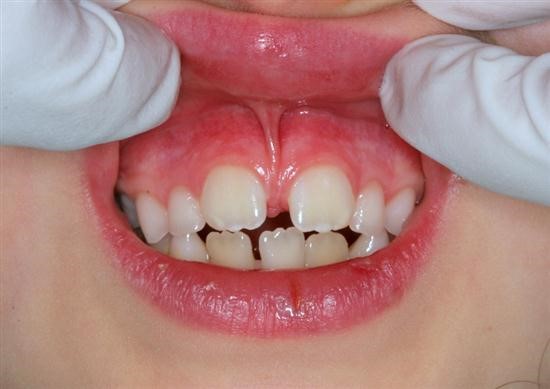Frenectomy

Frenectomy is a scary sounding word for a fairly simple and common procedure that addresses a few different medical problems, usually in the mouth and in children. The word frenum, or frenulum, describes the tough tissue that attaches any organ to the its neighboring tissue to prevent it from moving too much.
Think of it as a kind of tether to limit movement. There a several frenums in the human body, but only a few that commonly require frenectomy, and they are all inside the mouth. Common frenectomies involve the tongue and upper lip.
In some cases, the frenum is too short, tight or tough, and basically does its job too well. The inhibited movement causes difficulty with regular tasks like eating and talking, or hurts proper development in children, leading to aesthetic problems. The frenectomy is the simple procedure by which the frenulum is severed and typically removed to free up more movement. It’s a low-risk, outpatient procedure that is usually successful the first time in solving the targeted problem.
The Frenectomy Procedure
There are a few different ways to perform a frenectomy, but they are all fairly low impact and heal in a relatively short amount of time. The most basic frenectomy procedure is done with a scalpel or scissors. It is quite simply when a doctor uses an incision to release the frenum and excise it. The immediate area will be numbed usually with a topical anesthetic, and sometimes in young children laughing gas will be used to relax the patient. Depending on how much of frenum is severed or removed, there may be sutures to reposition the tissue. Usually dissolvable sutures will be sufficient.
A true frenectomy describes the removal the frenum, but in the case of a very young infant, it may be possible to just clip it.
There is another newer, more frequently used technique involving laser surgery. The procedure performs basically the same tactic, but uses a small laser to zap the frenum with pulses, gently severing the tissue. Doctors like this version of the frenectomy, since it tends to reduce bleeding, cause less tissue damage, and improve healing and post-procedure pain.
